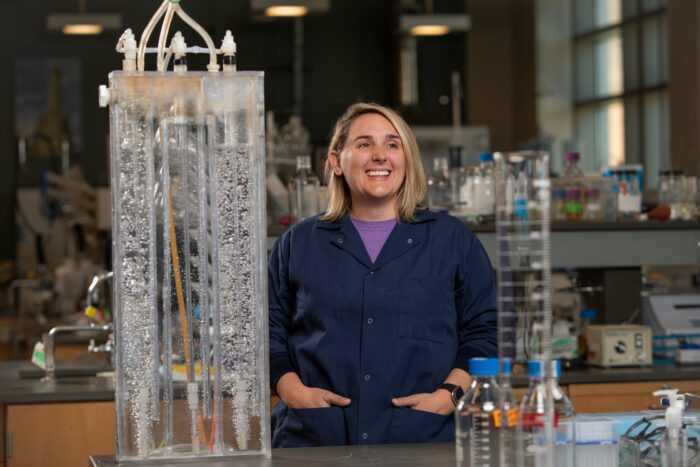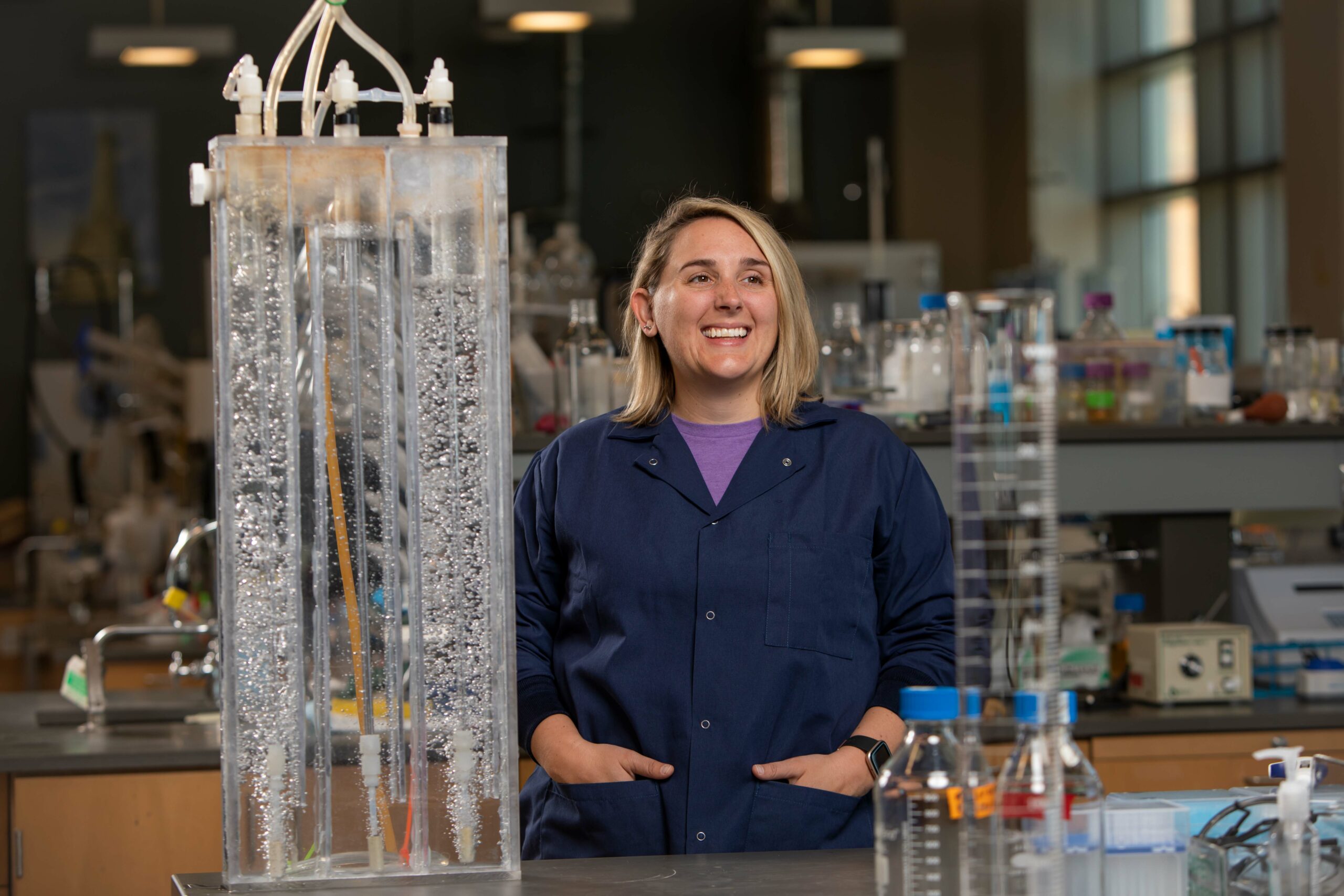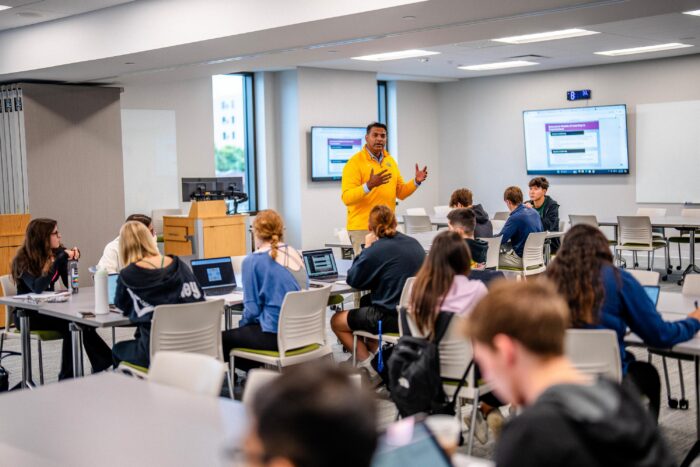Research from Marquette graduate student Paige Peters turns into a tech solution to prevent basement backups and untreated water discharges after storms.

By Anna Funk
Eight hundred cities in the U.S. — Milwaukee included — have a sewage problem. These cities have a combined sewer system, which means that sanitary sewage and stormwater are sent through the same pipe. It also means that after a major rain event or snowmelt, the overburdened system can back up, leaving residents with sewage in their basements and discharging untreated water into local water bodies. It’s detrimental for both public health and the environment, and the burden falls disproportionately on urban neighborhoods where population densities are higher.
This is the problem Opus College of Engineering doctoral student Paige Peters, Eng ’11, Grad ’19, wants to solve — and she’s already well on her way. She’s founder and chief technology officer of Rapid Radicals Technology, a startup developing and deploying water treatment technology that has the capacity to handle these stormwater surges. The tech combines solids removal and advanced oxidation (the “radicals” that remove all manner of pollutants) in low-footprint decentralized systems, which can be installed right at outfalls, where sewers empty into rivers.
Peters has been working with Dr. Daniel Zitomer, chair and professor of civil, construction and environmental engineering. In 2016, after the lab-scale systems Peters built achieved early proof-of-concept goals and thoroughly impressed industry partners, Zitomer suggested she start a company. “My goal had been to go to grad school for two years, to get my master’s and maybe to do international development work,” Peters says. “I had not thought of getting my Ph.D. and starting a company and getting millions of dollars in grants — that was the furthest from reality to me.”

Since then, Peters has won multiple awards, including $50,000 from the Wisconsin Economic Development Corporation enterprise seed fund and an additional $500,000 collectively from the Milwaukee Metropolitan Sewerage District and the National Science Foundation to build the first pilot-scale system. Last November, Rapid Radicals Technology won a $1 million grant from NSF to continue scaling the technology to handle greater water volumes.
Rapid Radicals also won the People’s Choice category of the 2021 Wisconsin Innovation Awards and the top prize at the 2022 Wisconsin Governor’s Business Plan Contest. Peters received the 2021 Story Exchange Women in Science Incentive Prize, awarded to women in science working on climate change mitigation in the water sector.
As Peters works to scale up the technology, she’ll also start collecting the data needed to prove all it can do — like remove PFAS, Cryptosporidium and Giardia, drug-resistant genes, pharmaceuticals and more. “We know that it can, based on the science,” Peters says. “But now we’re actually going to test it to prove it.”
“I became an engineer because I wanted to effect change in water,” Peters says. “The way water brings people together, and water itself as a public service, is something that’s really important to me.”



